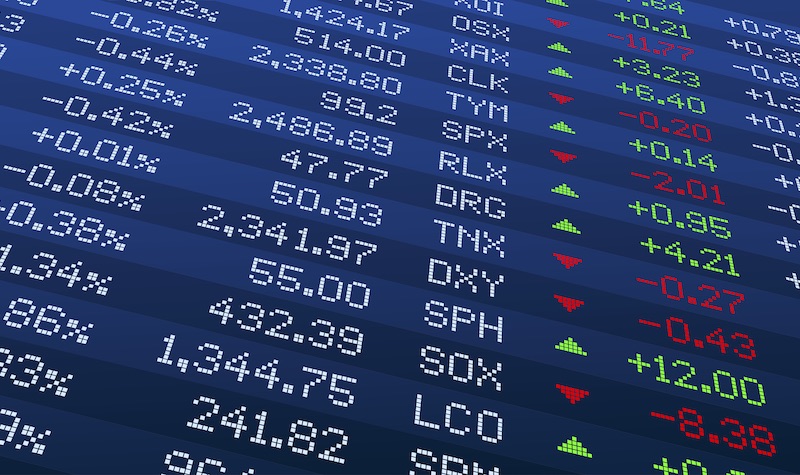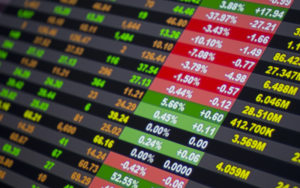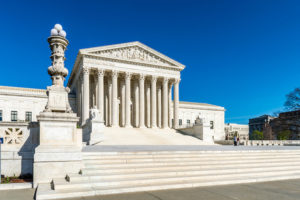
Scholars propose regulatory and legislative changes to increase oversight of insider trading.
Insider trading occurs when people trade stocks based on material nonpublic information—private knowledge of critical aspects of a company that could influence its share price. Little legislation, however, covers insider trading. Courts therefore have developed most of the governing law.
The U.S. Securities and Exchange Commission (SEC), the federal agency that regulates the securities markets—platforms for trading financial assets, such as stocks or bonds—issued rule 10b-5 in 1942. Rule 10b-5 prohibits employing “any device, scheme, or artifice to defraud,” making an “untrue statement of a material fact,” or engaging in any kind of fraud or deceitful practice. Although the SEC did not define insider trading in rule 10b-5, the rule has evolved into one of the most important federal tools in combatting securities fraud.
But demonstrating 10b-5 violations can be difficult. For instance, if investment bankers knowingly forward their boss’s false statements in emails sent to investors, are the investment bankers liable for making false statements of material fact? Or do individuals engage in insider trading when they are the fourth or fifth person in a chain of information sharing?
One legislative attempt to curb insider trading is the Stop Trading on Congressional Knowledge Act (STOCK Act). But the law only applies to members of the U.S. Congress and congressional employees. Before the stock market crashed in March 2020, four U.S. senators engaged in trades that may have violated the STOCK Act. These senators allegedly received briefings—supposedly containing classified information—about the economic threat of the coronavirus.
Only one criminal investigation—that of Senator Richard Burr (R-N.C.)—reportedly continued into the summer. As with 10b-5 violations, insider trading under the STOCK Act can be difficult to prove. The Act is designed to prevent trading on “material, non-public information.” But it is hard to demonstrate that a particular trade was made based on inside knowledge. For example, Senator Burr has claimed that he executed his trades using public information, instead of impermissibly acting on any information he received through his senatorial briefings.
In this week’s Saturday Seminar, scholars discuss insider trading regulation, the SEC’s efforts to combat securities fraud, and proposals to resolve ambiguity in existing law.
- The biggest challenge of regulating insider trading is striking the appropriate balance between stopping unfair access to potential returns-generating information while preserving “sufficient incentives for research to promote market efficiency,” Jill E. Fisch of the University of Pennsylvania Law School claims in an article in SMU Law Review. One approach, Fisch suggests, would be legislation that provides clarification about insider trading, such as defining the scope of liability. Fisch argues, however, that doing so would “require policymakers to reach consensus on the appropriate scope of the prohibition,” and that leaving the issue to the courts instead can be advantageous for insider trading liability “to respond to evolving market practices.”
- In 2000, the SEC enacted Regulation Fair Disclosure—or Regulation FD—which requires a company that discloses nonpublic information to securities market professionals or shareholders toelease that information to the public at large. The SEC intended that this provision promote market fairness, Michael Guttentag of Loyola Law School claims in a Florida Law Review Guttentag argues that Regulation FD has had a “wide-ranging impact” on how companies disclose information that may affect the market. In fact, nearly all public companies now prohibit their employees from disclosing material nonpublic information, Guttentag notes.
- In an article in the Michigan Law Review, Adam Pritchard of the University of Michigan Law School critically examines insider trading law by reviewing Sheelah Kolhatkar’s Black Edge, which covers the federal investigation of SAC Capital Advisors. Pritchard explains that the Securities Exchange Act never explicitly mentions insider trading. Instead, U.S. courts have developed insider trading law—a history that Pritchard argues has created ambiguities in defining the kind of behavior that is prohibited and thus constitutes insider trading. Pritchard calls for Congress to create new legislation that defines more clearly what constitutes insider trading.
- The U.S. House of Representatives passed the Insider Trading Prohibition Act in December 2019. In an article in the New York Law Journal, Ernest Edward Badway of Fox Rothschild LLP considers the potential effect of the bill on insider trading law. Badway explains that the bill would expand liability for insider trading and clarify the boundaries of permissible behavior in securities trading. The “overwhelming bipartisan support in the House” bodes well for the future of the bill and insider trading law, Badway claims
- Regulating insider trading aims to maintain “the integrity of the disclosure” that securities law requires of public companies, explains James J. Park of the UCLA School of Law. In an article in the Wisconsin Law Review, he argues that current mandatory disclosure regulations—which intend to grant all investors equal access to companies’ important financial information—do not fulfill their purpose. The United States uses a system of periodic disclosure, where companies continuously compile information but only have to release it to the public on a quarterly basis. According to Park, this delay creates an opportunity for insiders to profit from this information before it reaches the public—an outcome antithetical to the goals of mandatory disclosure. Park concludes that insider trading regulations should focus more on “ensuring equal access” to disclosure information than on trying to police all trades.
- In an article in the Washington University Journal of Law and Policy, Mississippi College School of Law’s John P. Anderson concludes that a primary justification for regulating insider trading—that is, to promote “public confidence in securities markets”—is unfounded. According to Anderson, the claim that investors are less likely to participate in the market without strict regulation of insider trading lacks empirical evidence. Because this market confidence theory has not been proven, Anderson warns against regulators using it to justify greater enforcement and penalties for insider trading.
The Saturday Seminar is a weekly feature that aims to put into written form the kind of content that would be conveyed in a live seminar involving regulatory experts. Each week, The Regulatory Review publishes a brief overview of a selected regulatory topic and then distills recent research and scholarly writing on that topic.



